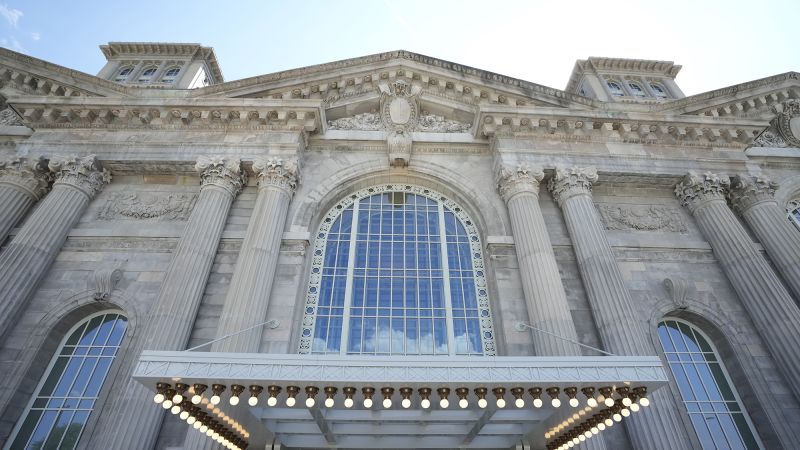Michigan Central Station in Detroit has been a symbol of the city’s economic struggles for over 35 years, sitting derelict and abandoned in the Corktown neighborhood. Former firefighter Ronald Butler recalls responding to fires at the station after it closed in 1988, reflecting the sense of hopelessness that pervaded the area. However, with Detroit’s bankruptcy in 2013, the city began a slow but steady economic recovery led by efforts to revitalize the downtown area.
The renovation of Michigan Central Station, along with the neighboring Book Depository, represents a beacon of hope for Detroit’s future. The historic train station, once the tallest in the world, has been restored through a nearly $1 billion investment from the Ford Motor Company and its founding family. The surrounding area has been transformed into an innovation district, fostering startups in mobility and energy technology, including Butler’s own venture focusing on fire mitigation for lithium batteries.
The resurgence of Detroit’s economy has been a result of both grassroots efforts and corporate investment. Philanthropic, corporate, and neighborhood groups have come together to revitalize the city, starting with basic infrastructure repairs and revitalization projects such as rebuilding sidewalks and turning on streetlights. The automotive industry has also played a crucial role, creating job opportunities and stimulating economic growth throughout the city.
Economic data reflects the positive trends in Detroit’s recovery, with job growth, revenue generation, and population growth all on the rise. The unemployment rate in Detroit is at 3.8%, slightly better than the national average, signaling a strong labor market and growing economy. While Detroit is still in the early stages of its economic revival, there are promising signs of progress and growth evident throughout the city and its neighborhoods.
The restoration of Michigan Central Station has been a monumental undertaking, symbolizing both Detroit’s past glory and its decline. Ford’s vision for the station includes transforming it into a mixed-use building with restaurants, retail space, offices, and a hotel. The nearby Book Depository has been repurposed as a tech hub for startups and companies in the energy, mobility, and manufacturing industries, fostering innovation and growth in these sectors.
As Michigan Central Station reopens to the public, it marks a new chapter in Detroit’s revitalization efforts. The station’s transformation into a hub of innovation, technology, and culture is expected to further boost Detroit’s economic recovery and position the city as a leader once again. The restoration project, which involved over 3,000 skilled tradespeople and meticulous attention to detail, is a testament to the dedication and love poured into rebuilding this iconic landmark and revitalizing the city as a whole.













